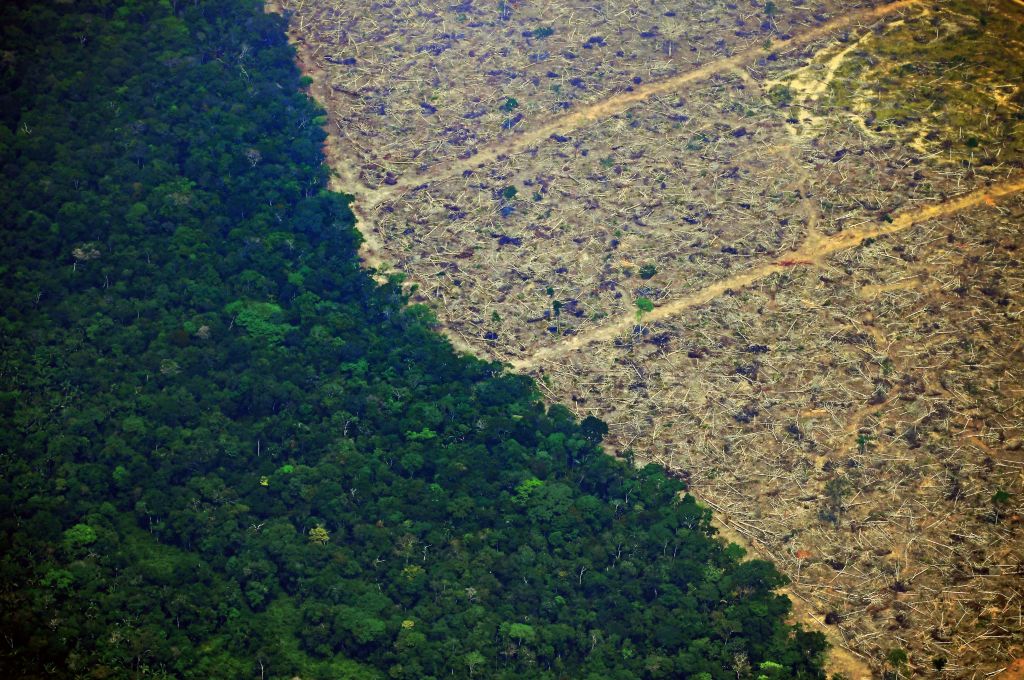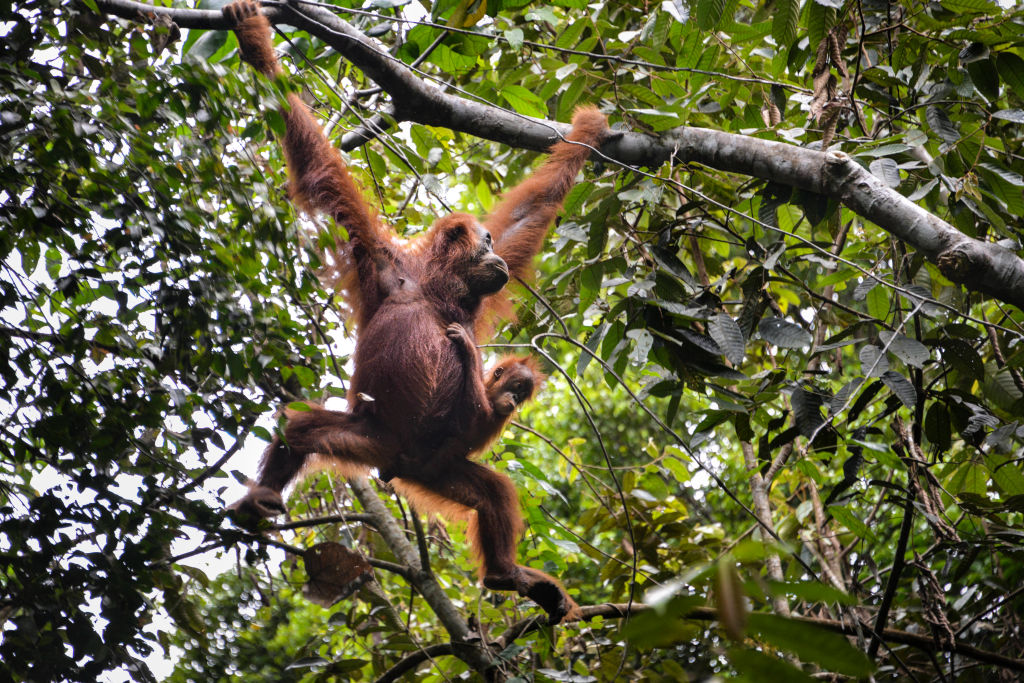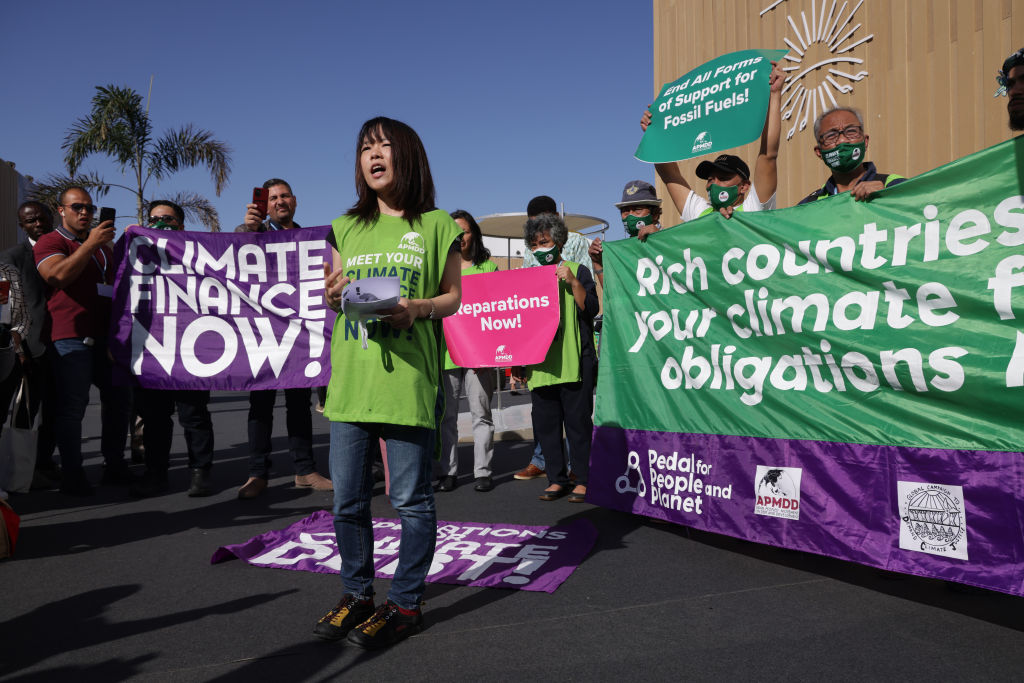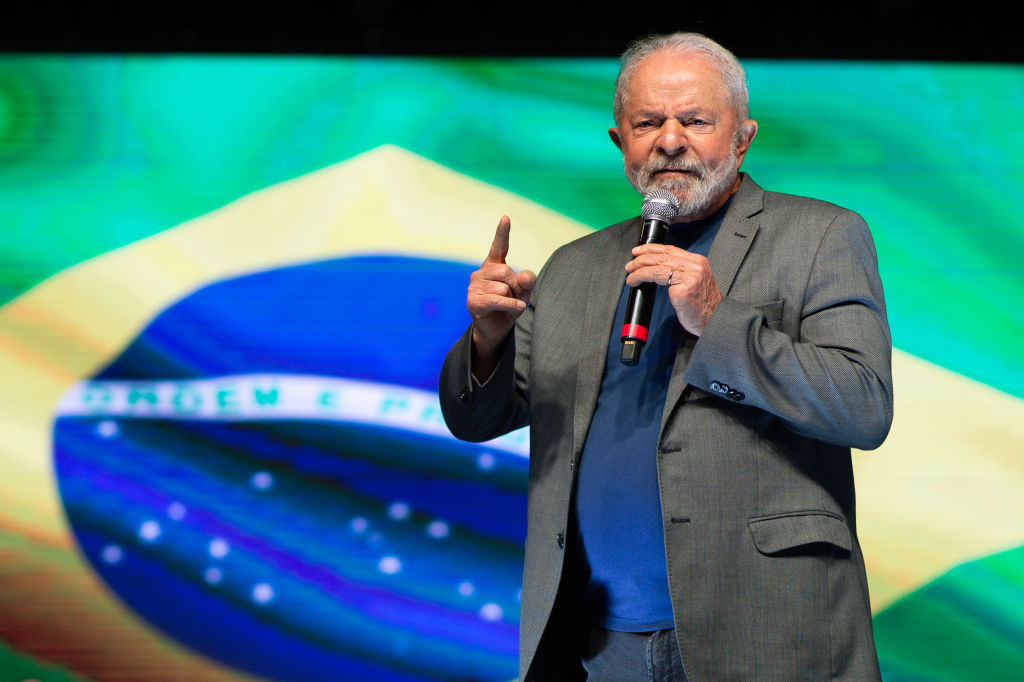
For around $15, companies can offset a metric ton of their carbon emissions by buying a credit from Wildlife Works, a conservation organization in the Democratic Republic of Congo. It uses the money to stop slash-and-burn farmers from chopping down the world’s second largest rainforest, the Congo, by helping them transition to more sustainable forms of agriculture and other economic activities. The $15 per credit—a price set by a U.N.-backed carbon market—is better than many similar programs, says Wildlife Works’ DRC director JR Bwangoy-Bankanza. “But it’s not enough,” he says. “For people to protect the forest, they need more income, and we need a [bigger] funding stream.”
Bwangoy-Bankanza is hopeful that a new alliance between the DRC, Indonesia, and Brazil will change that. At the G20 summit in Bali on Nov. 14 the trio—collectively home to 52% of the world’s rainforests—announced that they will work together at international summits like COP27, the U.N. climate conference currently underway in Egypt, to secure “payments to reduce deforestation.”
Oscar Soria, campaign director at U.S.-based nonprofit Avaaz, has nicknamed the new alliance an “OPEC for rainforests,” in reference to the cartel of major oil producing nations which collaborate to influence global fuel prices. “Currently, developed nations that have the money set the tone at the conversations,” he says. “But an alliance of countries can actually have real power in the global market and in international relations.”
The idea that richer countries should finance the protection of rainforests in developing regions—because they are vital to trapping carbon dioxide and slowing climate change—has been popular for decades. But conservationists have struggled to get donors or carbon credit buyers to pay enough to do programs at a scale that can stop deforestation in time to save the climate. To change this, analysts expect the new alliance will seek a new funding mechanism and attempt to use their weight to boost prices for carbon credits, as well as sharing strategies to combat deforestation.

This rainforest alliance, however, is far from wielding the same influence as OPEC, which has 60 years of investment and bureaucracy behind it: the joint declaration released by the three countries is light on details of how they plan to get funding and implement new programs. More information may emerge once Brazil’s recently elected leftist President Luiz Inácio Lula da Silva, who has pledged to halt deforestation in the Amazon rainforest, takes office on Jan. 1. (Brazil’s current government, led by far right President Jair Bolsonaro, signed the deal, but parallel talks have taken place with Lula’s incoming representatives.) Lula is set to deliver a speech at COP27 on Wednesday.
But the collaboration between three Global South countries appears to be an attempt to wrest control of the deforestation conversation, amid mounting frustration over what they see as discriminatory policy in Global North countries. In July, Brazil, Indonesia, and 12 other developing countries, sent a letter to the E.U. protesting the bloc’s recently-approved ban on commodity imports linked to deforestation, calling it a “unilateral” move that would harm developing countries’ economies without helping them tackle the causes of environmental destruction.
The alliance is part of a trend manifesting during COP27. Exasperated by rich countries’ failure to deliver enough climate finance through existing schemes, developing countries are finding creative ways of getting what they’re owed. Barbados Prime Minister Mia Mottley has launched a campaign for an overhaul of the IMF and World Bank to better serve crisis-stricken countries. Speeches from leaders’ like Pakistan’s Prime Minister Shehbaz Sharif have highlighted the “debt trap” posed by borrowing to clean up climate disasters, fuelling interest in so-called “debt for climate” swaps. Meanwhile Sri Lanka and Bangladesh are pushing their own “Climate Prosperity Plans” to try to drum up private sector investment in lieu of aid.

“We’re seeing more and more coordinated responses to push a transformation of the international financial system,” Soria says, “This will be seen as the COP where the Global South organized on new fronts to hold the Global North accountable.”
The rainforest alliance, however, is no slam-dunk for climate justice. Brazil, the DRC, and Indonesia all have a history of violating the rights of Indigenous groups and local communities that live in their rainforests, and a failure to prevent violence against environmental activists. Civil society groups, including Avaaz, have expressed concern that the agreement lacks an explicit commitment to correct that history as part of accessing increased funding. Civil society groups have accused Wildlife Works of failing to properly consult the communities living in the project area, and on Nov. 7 Greenpeace Africa alleged that the DRC government encouraged the group to “wrest” people’s consent for the project. Bwangoy-Bankanza has called Greenpeace’s investigation a “web of lies.”
Climate advocates also warn that it has been extremely difficult to prove that existing carbon offsetting programs in rainforests have had a meaningful impact on carbon sequestration, meaning any new programs created will have to include robust accounting mechanisms.
Still, these kinds of developing country alliances are a useful opportunity to share knowledge on how to overcome those challenges, says Carolina Genin, Brazil climate director at the nonprofit World Resources Institute. “The problems are very similar, so both the environmental and economic solutions are also similar.”

When it comes to getting more financing, the alliance should be given a boost by Lula’s participation. Brazil’s incoming leader served as President from 2003 to 2010, and was known as a strong diplomatic voice for the Global South, and a champion of South-to-South collaboration. He also oversaw an 80% reduction in deforestation rates in the Brazilian Amazon, and stepped up Brazil’s foreign aid for lower income countries. “Lula’s election is good news for developing countries,” Genin says.
Despite the concerns, Bwangoy-Bankanza, the DRC conservationist, is excited about the alliance. He says it could force wealthier nations, who destroyed their forest cover hundreds of years ago, to recognize the financial needs of countries like his. “Up to now nobody really cares about the tropical forests—even though their speeches are good, they don’t recognize the importance,” he says. “We should not have to stay at this level of poverty while we are protecting everyone. And therefore, we can be compensated.”
Update, November 17
This story has been updated to reflect allegations made against Wildlife Works and the organization’s response.
More Must-Reads from TIME
- Donald Trump Is TIME's 2024 Person of the Year
- Why We Chose Trump as Person of the Year
- Is Intermittent Fasting Good or Bad for You?
- The 100 Must-Read Books of 2024
- The 20 Best Christmas TV Episodes
- Column: If Optimism Feels Ridiculous Now, Try Hope
- The Future of Climate Action Is Trade Policy
- Merle Bombardieri Is Helping People Make the Baby Decision
Write to Ciara Nugent at ciara.nugent@time.com